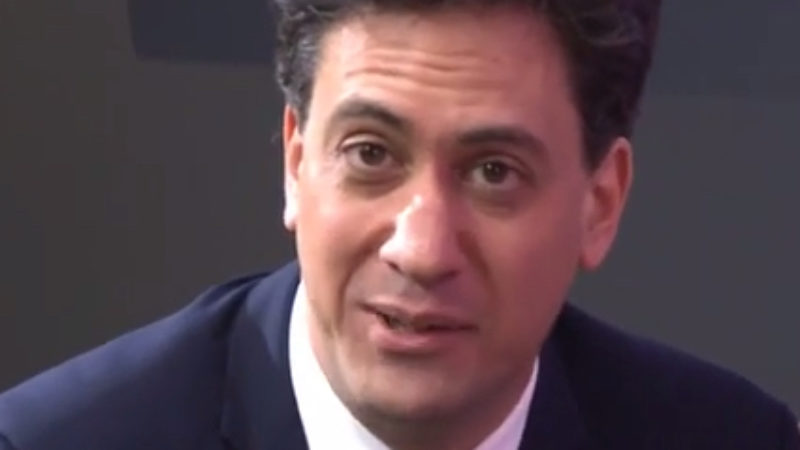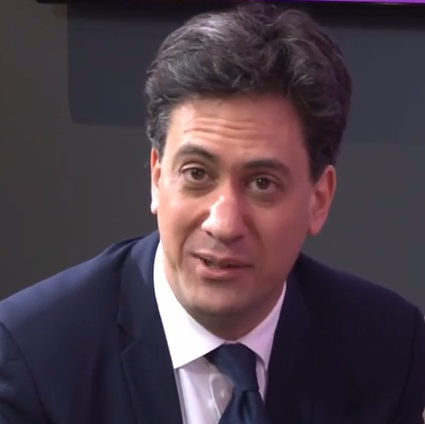
With the general election so close, Ed Miliband has said that he wants to reach out to Tory voters.

In an interview with the Observer, Miliband said: “I am a politician of the left, but I am positioned where the mainstream of politics is positioned. I am on the centre ground of politics.” In contrast he says Cameron is “ideologically beached”.
The Labour leader built upon this argument explaining how his ‘centre-ground’ position could appeal to voters from across the political spectrum:
“I want to reach out to Tory voters, to Liberal Democrat voters, to Ukip voters, to non-voters … to people who feel that David Cameron can’t answer the challenge of our time, who worry about our place in the European Union, who really think to themselves, ‘we can do a lot better as a country’.”
Who is going to stand up to tax avoidance? Who is going to stand up to energy companies? Who is going to stand up to banks? That is absolutely something I think will appeal to Tory voters.”
In recent weeks, opinion polls have shown that voters are very critical of the Tories’ negative campaign, in which they’ve launched repeated attacks on Miliband. He’s upfront about what this means in terms of the election:
“I think this Tory campaign is making people more sceptical about the Tories and the Labour campaign is making people more convinced about us. I put it no higher than that. I’m a pretty sober person about these things. But to the extent that there is a shift going on in this campaign, it’s a shift to us.”
“As leader of the opposition, you get your moments to set out your vision, but they are a bit few and far between. This is a chance to set out what I want to do for the country. Nobody watching me will think: ‘This guy doesn’t know what he wants to do for the country.’ This guy knows what he wants to do for the country. Some people will like it; other people won’t like it. And then people will make a choice.”
On this choice, Miliband is forthright in his condemnation of the Tories’ plans, particularly their uncosted spending proposals for the NHS and their right-to-buy proposals
“They don’t have an idea where a penny of it’s coming from. I think it really has rebounded badly for them. It’s made them look like the incredible party.”
“We’ve said we’re going to balance the books as soon as possible in the next parliament. We’re going to cut the deficit every year. The right thing to do is not to set an arbitrary timetable but to set a clear objective because, as this government has learnt, a lot depends on economic circumstances. George Osborne is really good at making promises but very bad at keeping promises on fiscal policy.”
However, the polls suggest that the two parties are neck-and-neck. The latest batch show that the electorate is split: Observer’s Opinium poll has the Tories 4 points ahead of Labour (36% to 32%), while YouGov’s poll for the Times has Labour three points ahead of the Tories (36% to 33%).
Despite the fact that this polling suggests that even if Labour are the biggest party, it’s unlikely they’ll win a majority. But Miliband restates again (as he did during the TV debate on Thursday) that Labour aren’t going into coalition with the SNP – particularly as he says “Nicola Sturgeon has spent her life arguing against the Labour party. I think it’s unlikely that she’s become a great friend of the Labour party.” On Nick Clegg and recent rumours Labour are considering a deal with the Lib Dems, Miliband isn’t interested in fuelling the rumour mill, saying “I’m not going into all this.”
Instead, he’s still focussed on Labour’s ultimate goal:
“I hope to get a majority. I think it’s absolutely do-able. We’ve got two-and-a-half weeks to go. People are still making up their minds. A large bunch of people [are] undecided – probably more at this election than in previous elections. I absolutely believe the shift can happen to us. Let’s see where we are on 7 May.”




More from LabourList
‘Labour is being badly misled on housing’
Reeves bets on patience over populism
‘Energy efficiency changes must work for older private renters’